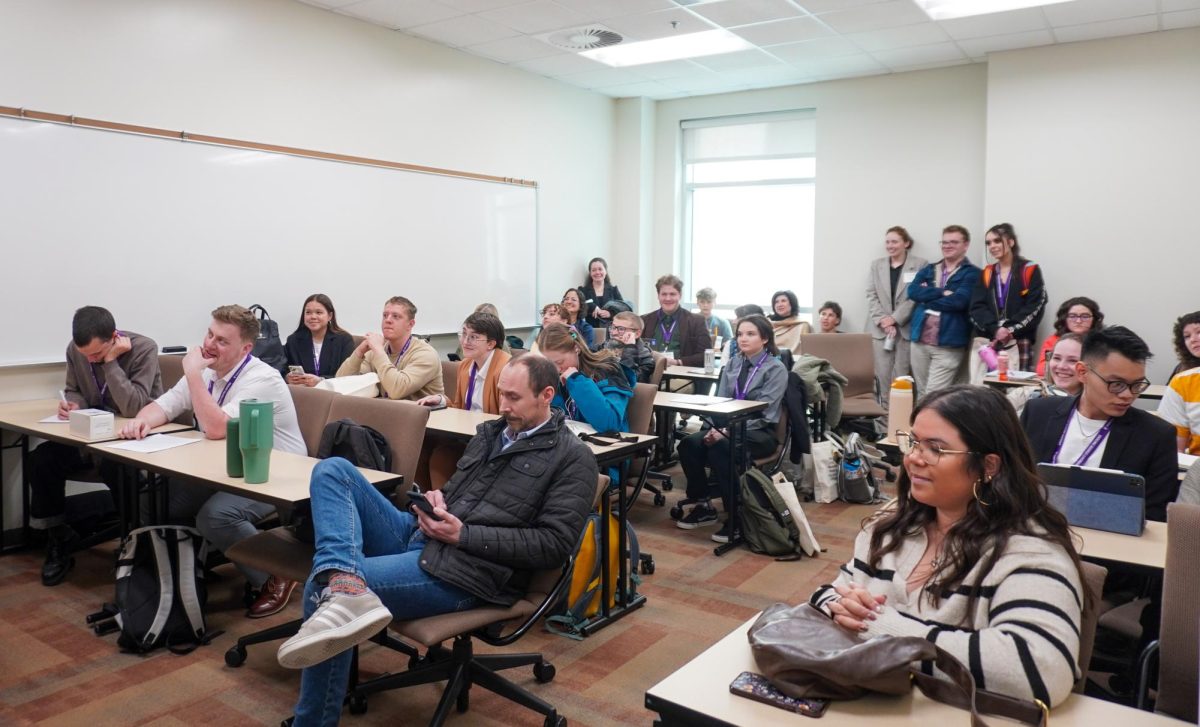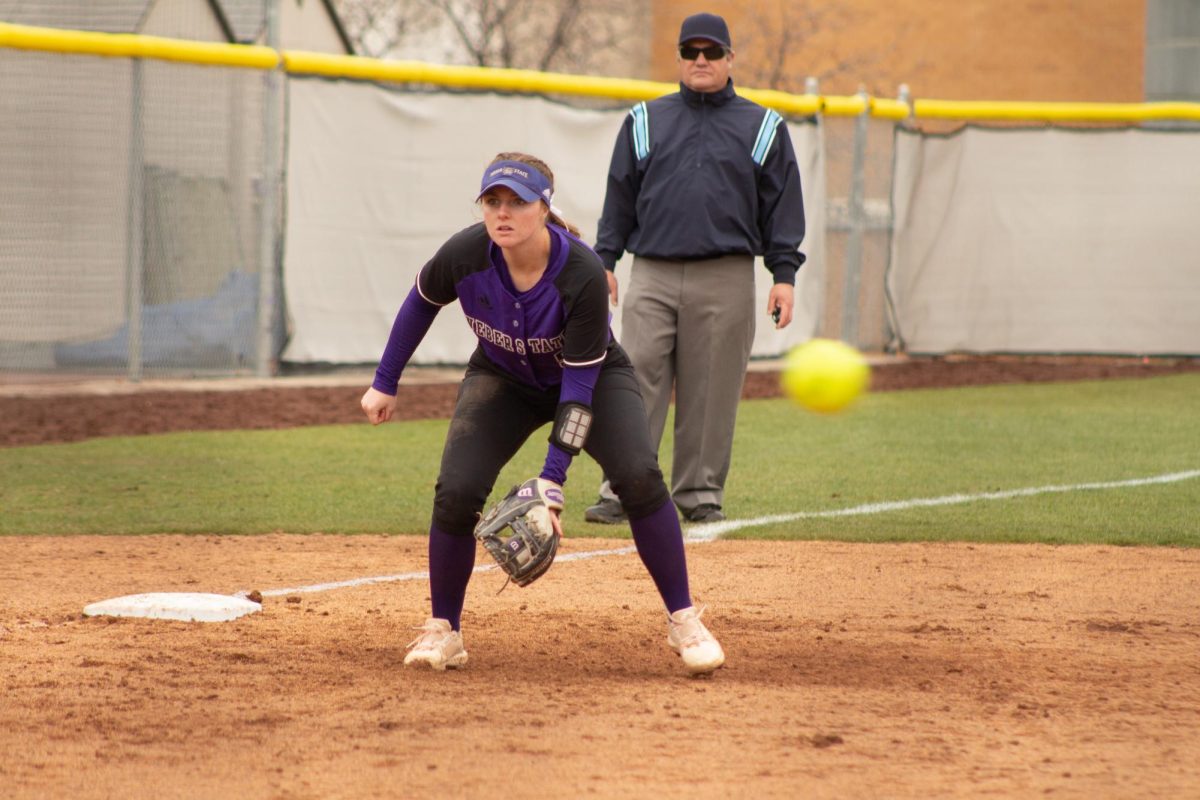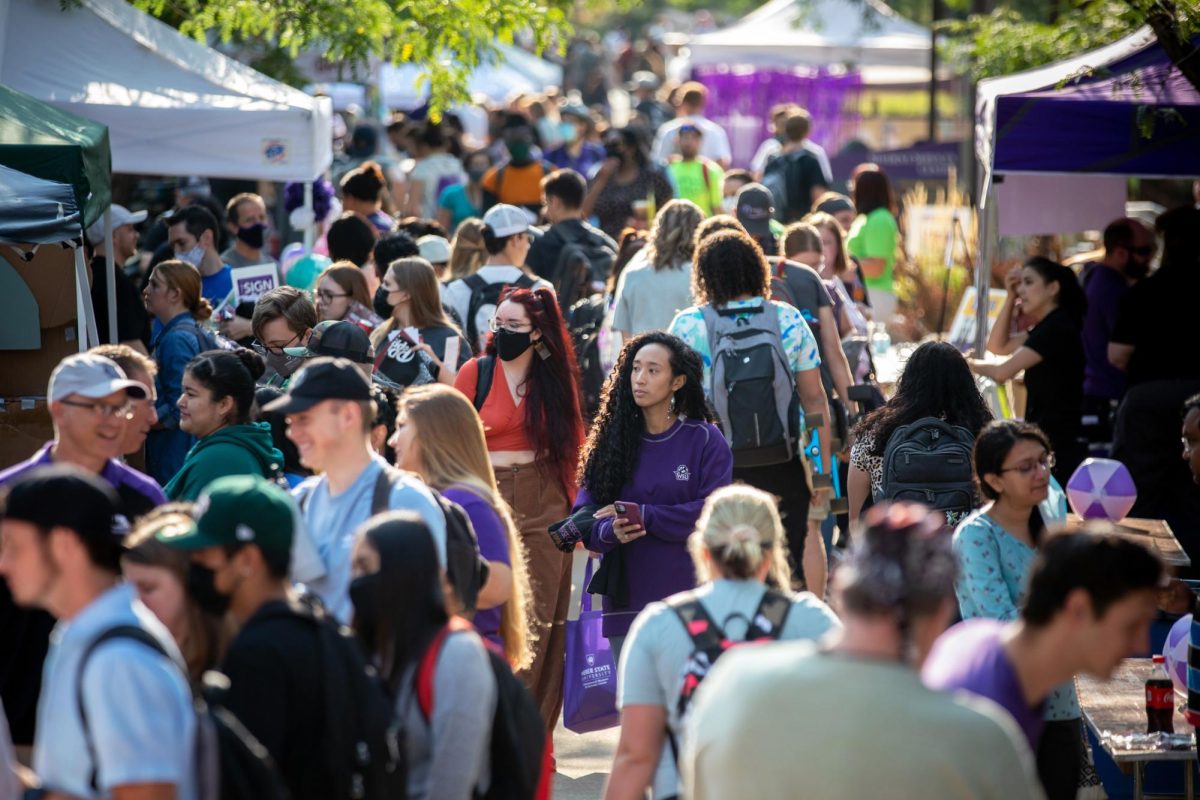
For most college students, spring break is a time to relax and party. For a certain group of 35 Weber State University students, spring break 2015 was used serving and volunteering in Seattle.
WSU Alternative Spring Break is a program designed to not only let students travel and enjoy a new city but also give students the opportunity to volunteer and make a difference in another community. This year’s Alternative Spring Break focused was on helping relieve food insecurity and poverty in Seattle.
Trevor Annis, the Alternative Break Chairman, said the students did 36 hours of services, often working from 8 a.m. until 5 p.m. The projects ranged from packaging meals for the elderly and those with chronic illnesses to planting trees to help strengthen the local ecosystem. Annis said the activities were meant to get participants out of their comfort zone and learn new skills.
Alternative Spring Break students also learned how they could help the Ogden community fight hunger and poverty. One of the organizations students volunteered at was Food Lifeline, a warehouse food pantry that serves Seattle and the surrounding areas. At Food Lifeline, the students aided in providing 4,290 meals for hungry people in western Washington by repacking cake mixes and helping organize food donations. Students also learned what types of donations are most needed by food pantries.
Alternative Spring Break not only helped the poor and hungry in Seattle, it also helped trip participants grow and meet other community-minded individuals.
“I wanted to attend Alternative Spring Break because in high school, I was very involved with the community, but I haven’t had that opportunity here,” Elena Molloy, freshman and psychology Major, said. “When I heard about this I got excited because I could be involved.”
One of the activities Annis and other leaders put together to help students gain a more personal understanding of poverty was to break up into teams of three and them give them $2.75 to buy a meal, which is the national average dollar amount per meal for an impoverished family of three. During the reflection time after the activity, each student voiced the same opinion that it was hard to obtain a healthy and filling meal on such little money. This renewed the students’ efforts to make a difference in their community with poverty and hunger.
“I liked it because we had the opportunity to enjoy a vacation and also make a big impact on another community,” said Alia Story, senior and double major in early childhood education and elementary education. “I think it opened my eyes to how many things you could do in a day and how much more enjoyable I felt after helping people, helping myself and still being able to enjoy my surroundings.”
In addition to giving service, students were able to enjoy Seattle’s famous landmarks, like Pike’s Market Place and the Space Needle. The students were also able to see a non-tourist side of the city by giving their time in local community gardens, as well as other local non-profit programs.
“I think the most rewarding thing about Alternative Spring Break has been two-fold,” Annis said. “I think that I came back with a renewed enthusiasm and excitement to do service in my own community. The second part is I love the students. They are so fun. You meet new people and make new friends. It also helps me understand social issues that affect Americans.”













